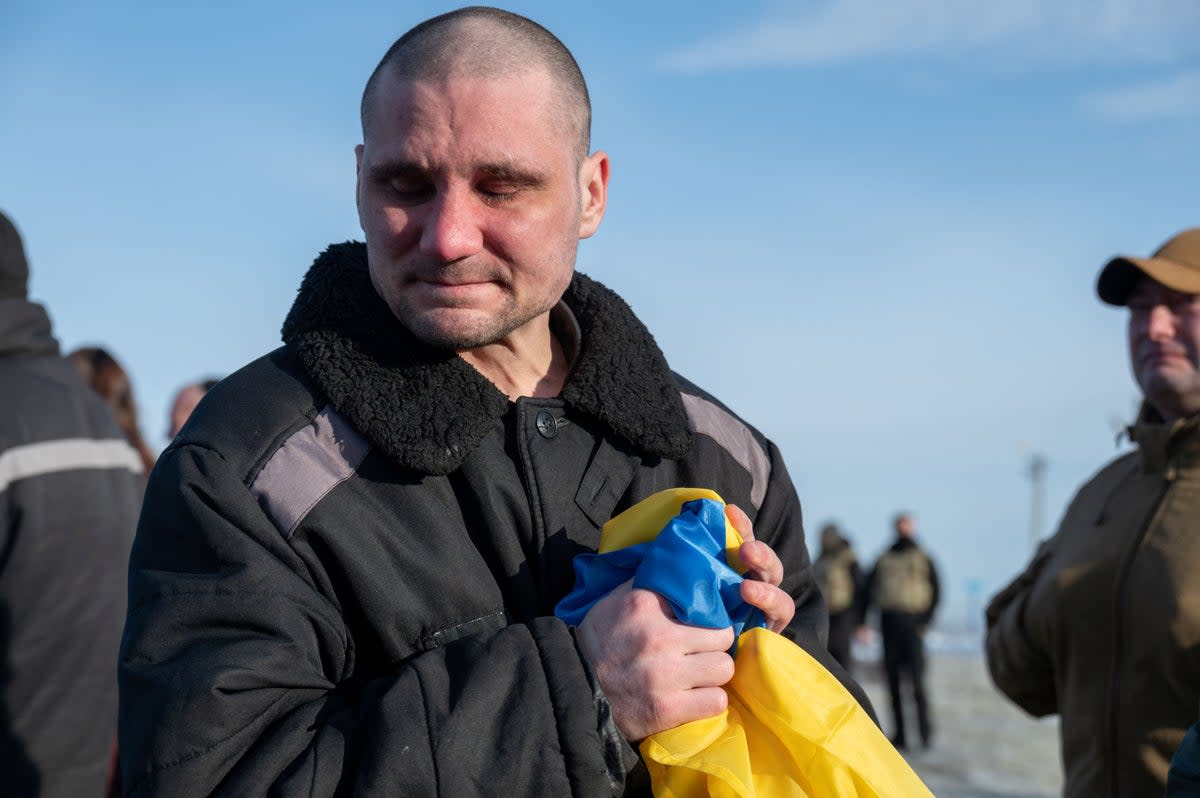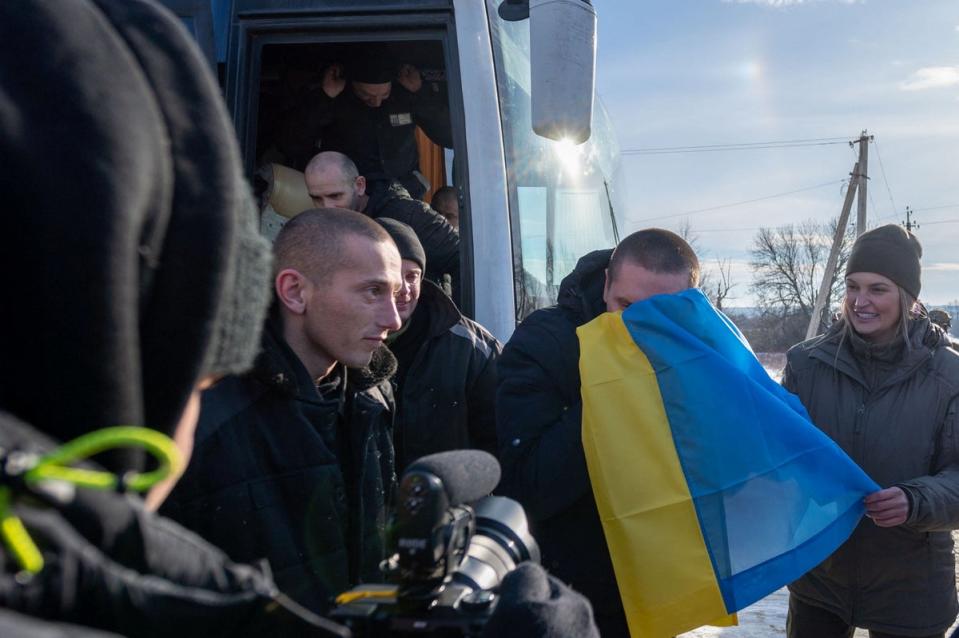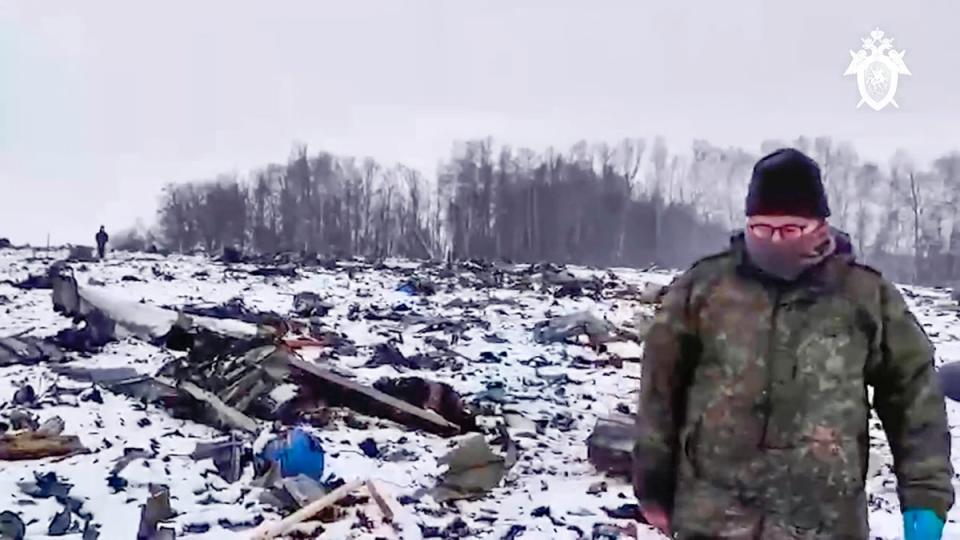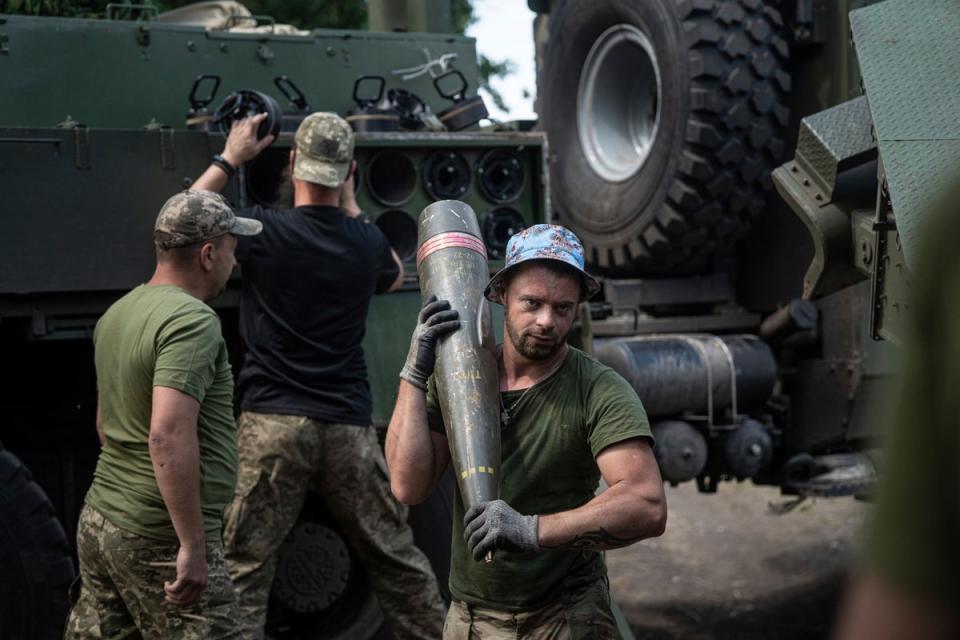Ukraine and Russia exchange hundreds of prisoners of war in first swap after plane crash

Russia and Ukraine have exchanged hundreds of prisoners of war in the first swap since a plane that Moscow claimed was carrying 65 Ukrainian captured soldiers crashed earlier this month, killing all those on board.
Ukraine said it had received 207 PoWs in the latest exchange, while the Russian defence ministry said both sides had exchanged 195 captured soldiers each.
“Our people are back. 207 of them. We return them home no matter what,” Ukrainian President Volodymyr Zelensky said.
“We remember each Ukrainian in captivity. Both warriors and civilians. We must bring all of them back. We are working on it.”
Ukraine’s state body in charge of PoWs said the exchange, the 50th of its kind, had brought home soldiers involved in defending the cities of Mariupol and Kherson, both in southern Ukraine, as well as some captured by Russia on Snake Island in the Black Sea.
It said marines and combat medics were among the Ukrainians returned, with 36 injured or seriously ill.

Footage filmed by Ukrainian authorities showed dozens of PoWs tumbling off buses shouting “Glory to Ukraine”. All had their heads shaven and wore black Russian prison uniforms.
One man could be seen collapsing on the floor and kissing the ground as he got out of the bus. Another could be seen crying into a Ukrainian flag, while others teared up during phone calls, presumably talking to relatives they had not spoken to for months or even years.
The Russian Ministry of Defence was cited by the RIA state news agency as saying that the United Arab Emirates (UAE) had helped broker the deal, adding that its soldiers would be flown to Moscow for medical and psychological treatment.
It is a surprisingly swift return to prisoner exchanges since the Il-76 military transport plane went down in Russia’s western Belgorod region near the border with Ukraine.

Russia has accused Kyiv of shooting down the plane, saying that 65 PoWs were on board, along with six crew and three other officials. However, it has not released proof that there were prisoners onboard or a confirmed flight manifest. Ukraine has not confirmed or denied bringing down the plane but has accused Russia of putting the lives of PoWs at risk. Ukrainian officials said they were not informed that the flight would be travelling on that path, but they did confirm that a prisoner swap was due to take place on the day of the crash.
Kyiv has also questioned Moscow’s claims about who was onboard, saying it has no information about who was on the plane. Both sides have called for an international investigation. Ukraine’s army said that Russia’s accusations could amount to “a planned action to destabilise the situation in Ukraine and weaken international support for our state”.
The Belgorod region has been the target of frequent cross-border attacks by Ukraine, and Kyiv has said it is also a hub for the transport of Russian missiles used on Ukrainian cities.
In the latest claim from the Kremlin, Russian President Vladimir Putin alleged that Ukraine had used two US-supplied Patriot air defence missiles to shoot down the plane, without offering any evidence. But he did add that Moscow would continue prisoner exchanges and that Kyiv had indicated it was open to more.

It comes as the European Union’s foreign policy chief Josep Borrell said he expected the bloc to reach 52 per cent of its target to send one million rounds of shells to Ukraine by March this year, having delivered only 30 per cent of its original target by the end of 2023.
Ukraine is suffering from a shortage in artillery shells, particularly of the vital 155mm variation, after a high rate of fire during its summer counteroffensive last year and an absence of further EU and US military packages as both allies struggle to pass fresh aid. EU support is being held up by Hungary’s Prime Minister Viktor Orban, an impasse leaders hope to break at a meeting on Thursday. Meanwhile, domestic political squabbles are holding up the US Congress from agreeing new funding for Kyiv.
Michael Koffman, a senior fellow at the Carnegie Endowment for International Peace, where he specialises in analysing the Russian and Ukrainian military, estimated that Kyiv was currently suffering a five-to-one deficit in artillery shells.
Ahead of a meeting with EU defence ministers in Brussels on Wednesday, Mr Borrell warned that Ukraine needed more ammunition urgently.
“We have to show that our clear commitment with Ukraine remains and continues," he said, adding that it was important to clarify the situation and "know where we are now, where we will be by March and by the end of the year".
After the meeting, Estonian defence minister Hanno Pevkur said they had agreed to make sure that more than half a million artillery shells had reached Ukraine by March.
He added that they planned to have delivered 1.1 million rounds by the end of this year and increase EU production capacity to 1.5 million.
Mr Borrell has also revealed that EU countries plan to train another 20,000 Ukrainian soldiers, on top of the 40,000 already trained.


